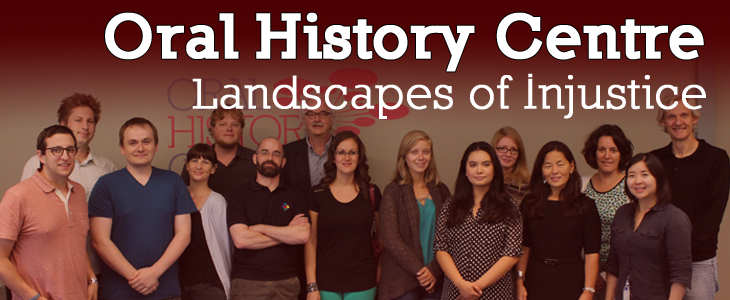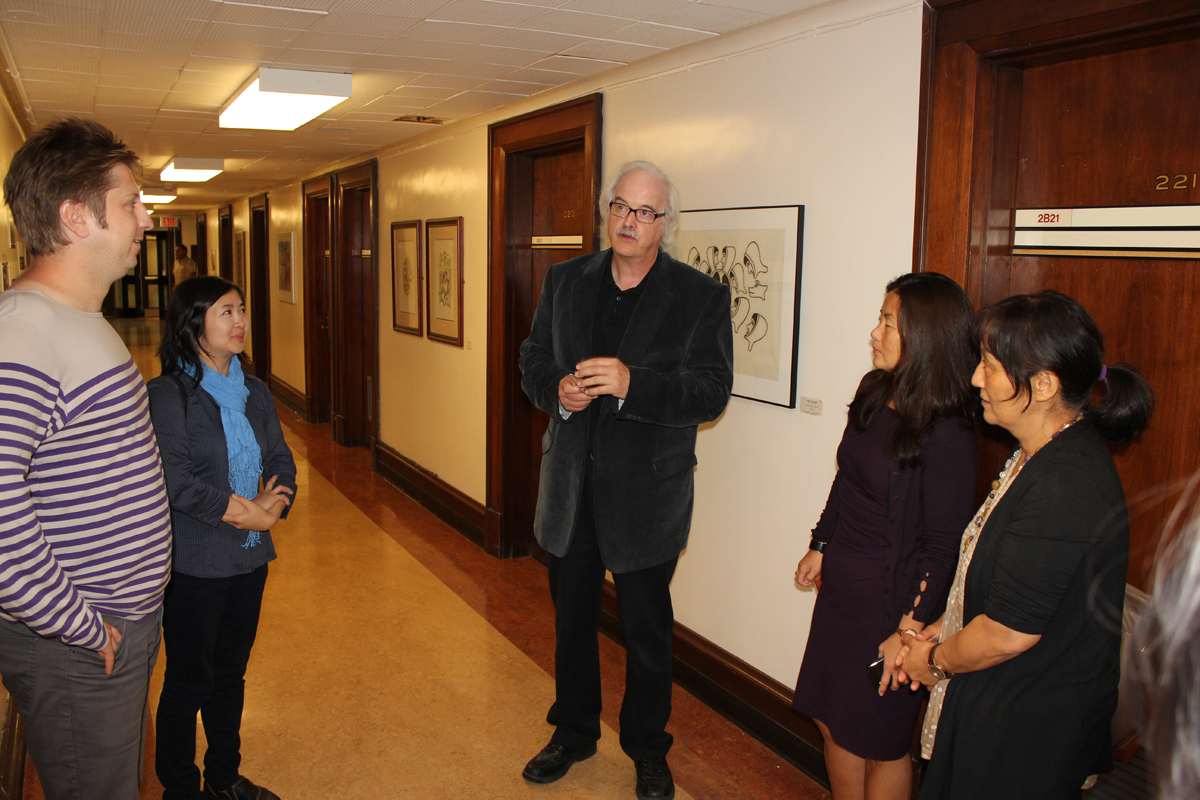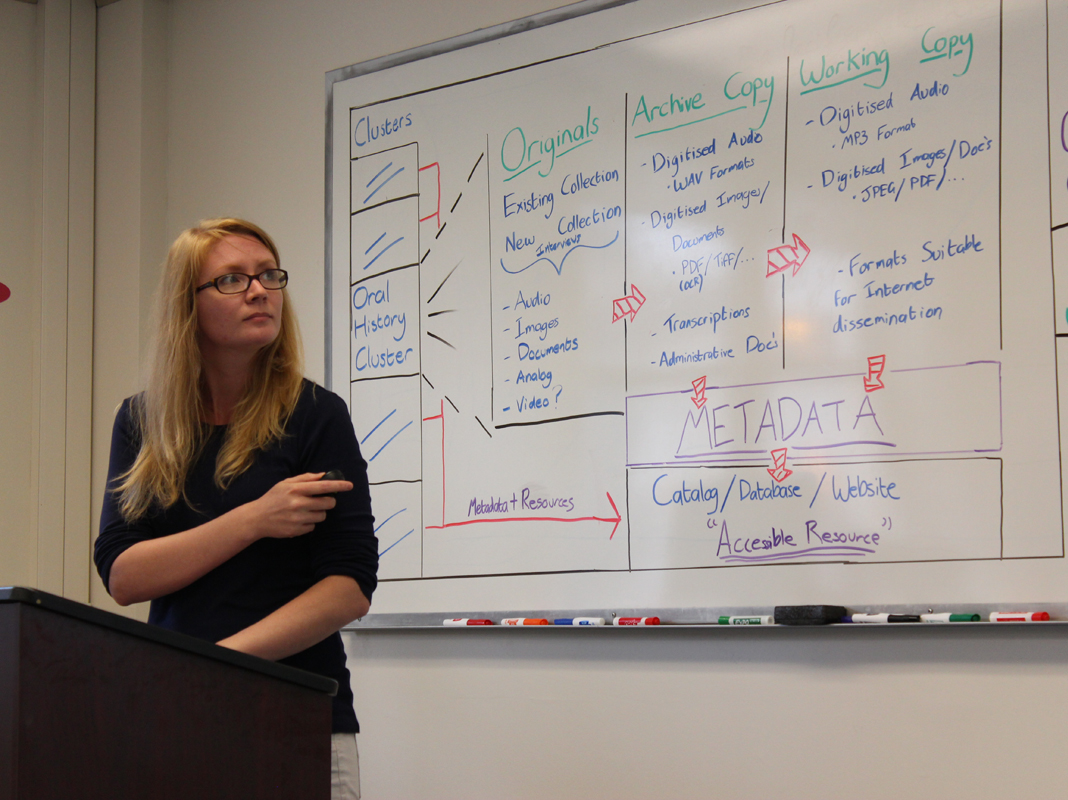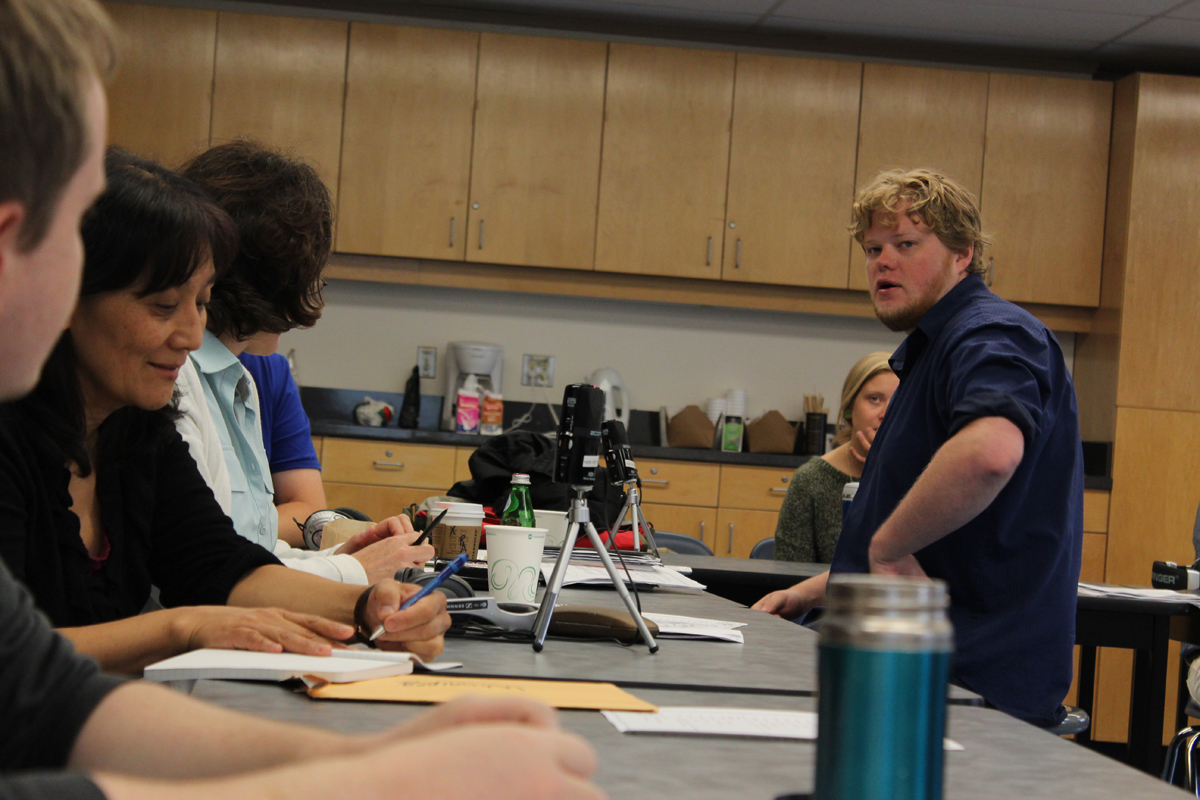News:
Using Oral History to Research Intergenerational Memories of Japanese Canadians’ Wartime Dispossession

During the Second World War the Canadian government uprooted over 21,000 Japanese Canadians from the coast of British Columbia and began the forced sale of Japanese Canadian property. UWinnipeg’s Oral History Centre has teamed up with twelve other organizations in a new seven-year research project entitled Landscapes of Injustice, which seeks to document the forced dispossession of Japanese Canadians. From 25 to 27 August, the Oral History Centre held a week long Oral History Institute for research assistants, faculty and collaborators with the recently announced Landscapes of Injustice project.
In preparation for creating close to 500 interviews over the coming years, the researchers learned about key elements and best practices in oral history research, including interview preparation and interviewing strategies, recording techniques, post-production processing, digitization, metadata collection, and overall project and workflow management.

Group portrait of the Landscapes of Injustice Summer Institute participants.
Next to new interviews, the project seeks to make extant collections more accessible. There are over 600 oral histories in the three largest Japanese Canadian collections and hundreds of interviews in smaller and private collections. Researchers learned how to create an inventory and digitize materials. Staff at the OHC also taught innovative strategies for multi-generational oral history interviewing to learn about the intergenerational dynamics of families’ experiences and memories of loss and displacement.
Over the coming years, the Oral History Centre will provide ongoing support for the project and participate in annual training workshops.
This project is possible thanks to a $2.5 million partnership grant from the Social Sciences and Humanities Research Council to support this multi-sector, multi-partner project. This project also received an additional $3 million from partners, for a total of $5.5 million.
For more information on the Landscapes of Injustice project you can visit their website.




